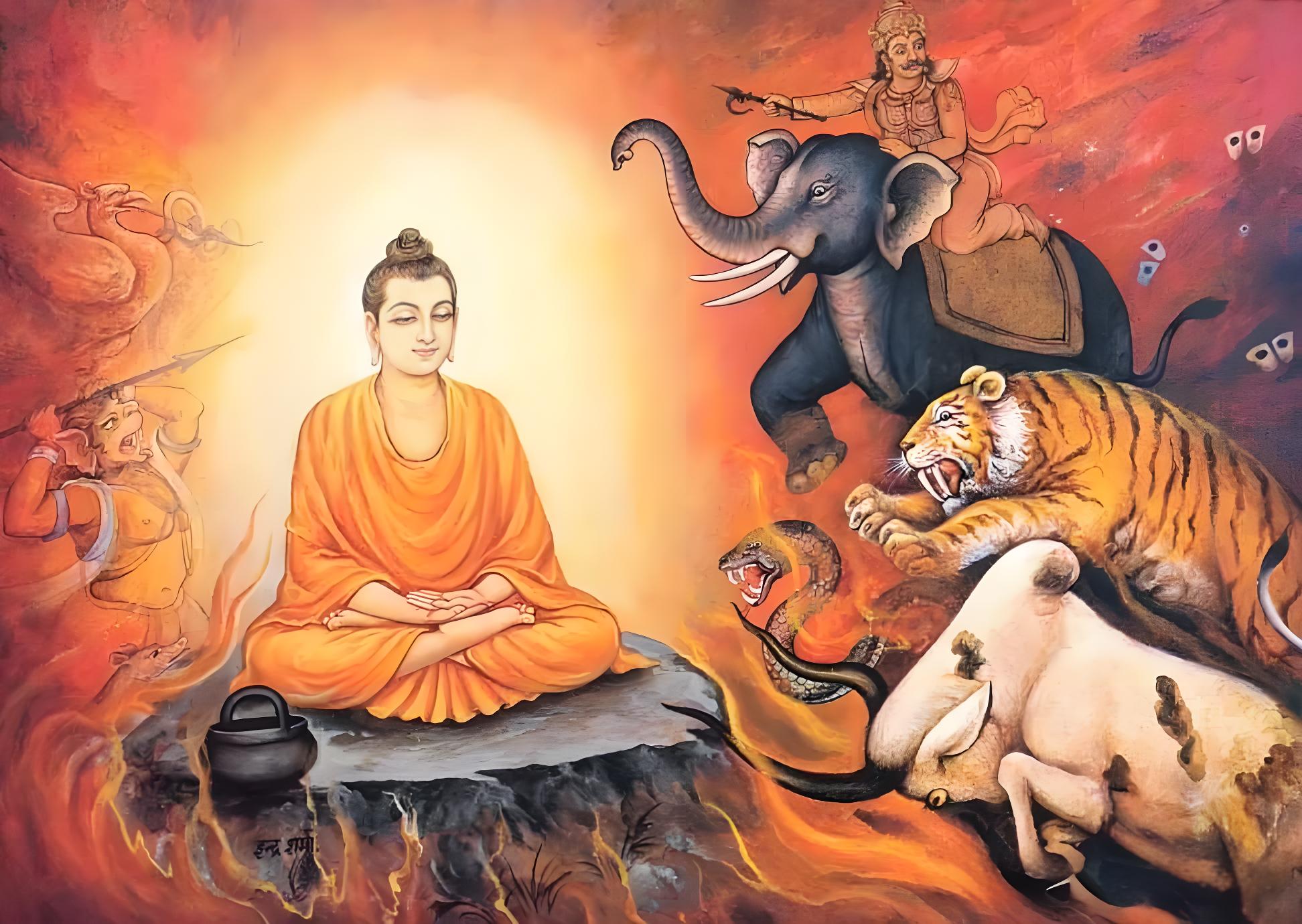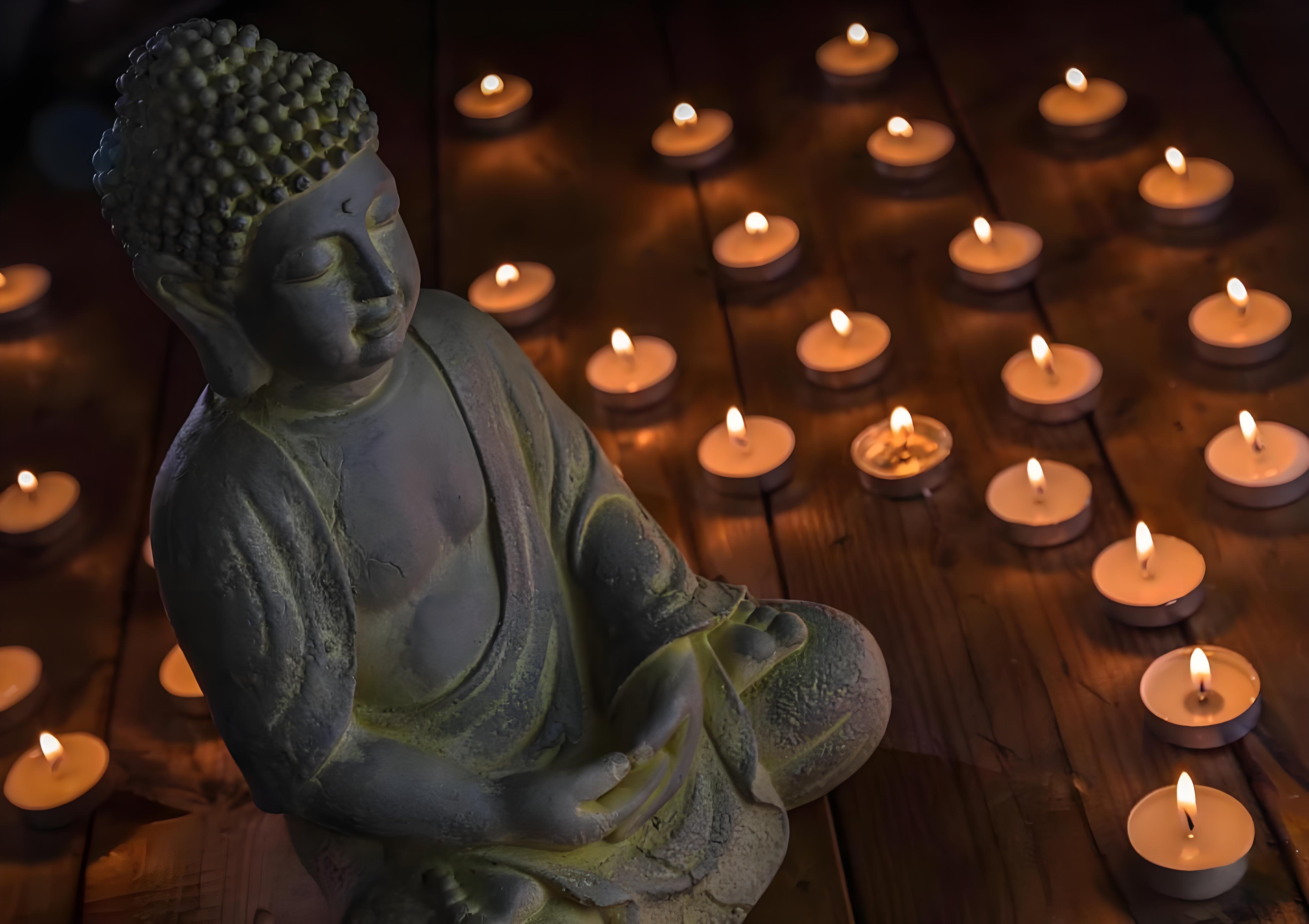Introduction: Understanding Buddhism and Karma
Buddhism, a path of spiritual development, offers profound insights into the human condition. At its core is the concept of karma. It is a central tenet of Buddhist philosophy. Many people wonder, “What is karma in Buddhism?” In this article, we will delve deeply into this question. We’ll explore the meaning of karma and its relevance. This will help us understand the framework of Buddhist thought. Furthermore, we will examine how karma influences our lives. It’s important to understand the subtle nuances. This will clarify the meaning and purpose of karma.
What is Karma in Buddhism?
Karma is not a simple concept of reward and punishment. Instead, it is a natural law of cause and effect. This law governs the universe. In Buddhist thought, karma refers to intentional actions. These actions create imprints on our consciousness. These imprints then lead to future experiences. Therefore, it’s important to understand that it’s not a predetermined fate. Instead, it’s the result of our own choices. These choices can be physical, verbal, or mental. In addition, every action, thought, and word contributes to the cycle of karma. Consequently, we have agency over the consequences we experience.
Karma Buddhism Meaning: The Cycle of Cause and Effect
Karma, in its Buddhist meaning, is not about a divine judge. It’s about understanding the interconnectedness of all things. Every action we take has a corresponding reaction. It’s like planting a seed. What we sow determines what we reap. The karmic cycle is continuous. It influences our present circumstances and future experiences. This understanding is essential for personal growth. Consequently, we must be mindful of our actions. Additionally, we should strive to create positive karma.
The Three Types of Karma
Within Buddhism, we often find the concept of three types of karma. First, there is action or deed-related karma. These include physical acts. Next, there’s verbal karma. This involves spoken words. Finally, there’s mental karma. This pertains to our thoughts and intentions. All three are interconnected. And therefore, they contribute to our overall karmic footprint. In addition, cultivating positive thoughts, speech, and actions is key. This leads to favorable results in our lives. Thus, this can help us to break negative patterns.
The Importance of Intention in Karma
Indeed, intention plays a vital role in karma. An action’s intent determines its karmic weight. For example, an act of kindness done with a selfish motive is less karmically potent. However, a small act of kindness with a pure intention has greater significance. Therefore, the motivations behind our actions are extremely important. In the end, genuine compassion and wisdom are fundamental to creating positive karma. Consequently, focusing on cultivating these qualities is essential.
How Karma Influences Rebirth
Karma has a major impact on the concept of rebirth in Buddhism. The cumulative effects of our karma influence our future lives. Thus, positive karma leads to favorable rebirths. On the other hand, negative karma leads to less fortunate ones. Furthermore, it’s important to clarify that it’s not a form of reincarnation. Instead, it’s a continuous flow of consciousness. And, this consciousness is shaped by our actions. Consequently, we can understand the importance of living a life of virtue and wisdom.
Breaking Negative Karmic Cycles
Moreover, Buddhism provides practical guidance to break negative karmic cycles. First, practicing mindfulness helps us to observe our thoughts, feelings, and actions without judgment. Second, cultivating compassion allows us to act with kindness. Third, developing wisdom helps us to understand the nature of reality. By integrating these practices, we can purify our karma. As a result, we’re able to create more positive future experiences.
Practical Steps to Cultivate Positive Karma
To further cultivate positive karma, we can embrace several practical steps. Begin by practicing ethical behavior, refraining from harmful actions. Next, engage in acts of generosity and kindness. Also, try to cultivate loving-kindness, which is compassion for all beings. Moreover, mindfulness meditation is helpful in observing our thoughts. Additionally, we must strive to develop wisdom through study and reflection. All of these actions create a foundation for a positive karmic cycle.
Karma and Free Will: Finding Balance
Though karma shapes our lives, it doesn’t diminish our free will. Actually, we have the freedom to make choices. These choices, then, determine our future experiences. Therefore, understanding karma empowers us to take responsibility for our actions. It helps us to cultivate a more positive future. Also, this will allow us to contribute to the well-being of others. It’s about making conscious choices guided by compassion and wisdom.
Misconceptions About Karma in Buddhism
It’s vital to dispel common misconceptions regarding karma in Buddhism. Firstly, karma is not about retribution. It’s not divine punishment or reward. Furthermore, it’s not a pre-set destiny. Instead, it is the result of our choices. Additionally, it’s crucial to understand that it’s not something to fear. Instead, it’s something to learn from. This is why understanding its principles helps us to make better choices. This will lead to positive results in our lives.
Applying Karma in Daily Life
Understanding karma can transform our daily lives. For instance, we become more mindful of our thoughts, words, and actions. This helps us make conscious choices aligned with our values. Moreover, when we act with kindness, we create positive ripples. Also, when we make conscious choices we help both ourselves and the world around us. Therefore, karma encourages us to live with integrity. This, in the long run, leads to personal growth and positive change.
Karma and the Path to Enlightenment
The teachings of karma are deeply connected with the path to enlightenment in Buddhism. By understanding and applying the principles of karma, we can gradually purify our negative tendencies. Furthermore, we can cultivate wisdom and compassion. This will help us to break free from suffering. This is the ultimate goal of Buddhist practice. Ultimately, karma is not something we passively experience. It’s a process we actively participate in.
The Role of Mindfulness in Karma
Mindfulness is a key practice in Buddhism. It helps us to observe our thoughts, feelings, and actions. As a result, it is directly related to our karma. By being aware of our internal states, we are better able to make conscious choices. This helps us to avoid engaging in negative behaviors. Thus, mindfulness allows us to interrupt negative patterns. Therefore, it leads to more positive karmic results.
Karma and the Concept of No-Self
The Buddhist teaching of no-self is also relevant to understanding karma. No-self means that there is no permanent, unchanging “I.” This concept challenges the idea of a fixed self that experiences karma. Instead, it emphasizes the interconnectedness of all things. Also, that everything is in constant change. Therefore, our karma is not isolated to just ourselves. It’s a part of a larger web of causes and effects. Thus, understanding no-self helps us to relate to others with greater compassion.
The Timeless Wisdom of Karma in Modern Life
The wisdom of karma continues to be relevant in our modern world. For example, when we understand the impact of our actions, we are more likely to make responsible choices. Also, when we live with integrity, we create a better world for all. Therefore, the principles of karma are helpful in promoting positive relationships. Furthermore, it can foster personal well-being. This is why its timeless wisdom is something that we should continue to explore.
Conclusion: Buddhism and Karma
In conclusion, the concept of karma in Buddhism is profound. It is a powerful tool for understanding the nature of reality. Also, it explains the impact of our choices. “What is karma in Buddhism?” It is the law of cause and effect. It shows how our actions shape our lives. By embracing these teachings, we can actively participate in creating a positive future. Therefore, understanding this fundamental concept can be a guide to live more ethically and with compassion.



